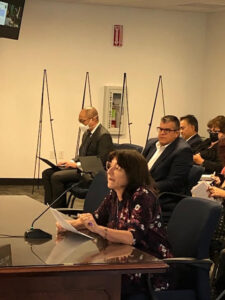

United Policyholders generally focuses on helping consumers get treated fairly by insurers, avoid and solve coverage gaps, and advocating for laws and regulations that uphold the loss indemnification purpose of insurance. We rely on state insurance regulators, competition, and our consumer advocate colleagues who intervene to challenge rate increase requests to keep premiums in check.
But as property insurance affordability and availability challenges grip more and more home, business and condo owners in regions prone to natural disasters, pricing issues are requiring more attention and consumer advocacy. Inflation and supply chain interruption, labor shortages and a series of costly and destructive wildfires that devastated California between 2017 and 2020 have intensified pressure on the Department of Insurance to approve large property insurance rate increases. UP continues to advocate for fair and moderate increases where truly warranted, and we continue to oppose inflated loss projections and excessive profits.
From the time Prop 103 was enacted, California insurers have been vocal about wanting less regulation generally, but they have dramatically intensified their campaign for two specific items on their wish list, and at early 2023 State Senate and Assembly hearings appeared to be gaining some traction with lawmakers.
As an invited witness at one of those hearings, UP did our best to inform lawmakers on the downside of granting those wishes whole cloth, and urged them to proceed with moderation and caution. UP supports preserving and improving the Fair Plan (a critical safety valve when private insurers retreat and are not an option) but we recognize that because it is a high risk pool – the policies it sells will typically cost more than policies sold by companies that have diverse (high and low) risk pools.
Here is a link to our full testimony: March 8, 2023 Assembly Ins. CA Fair Plan Investigatory Hearing
Lawmakers are being bombarded by complaints from constituents who’ve been dropped by their insurers, (even after making risk reduction improvements), and unable to find replacement coverage outside the last-resort, expensive, bare bones protection California Fair Plan, so they are all ears and seeking solutions. UP is helping consumers contend with the situation by hosting shopping help webinars, promoting mitigation incentives and rewards, and coordinating with agents and broker volunteers and the CA Department of Insurance.
Insurers’ two wishes are to be allowed to factor reinsurance costs into the rates they charge their customers, and be permitted to base their rates on models that purport to predict future catastrophes. The leading insurance agent and broker trade association is on the campaign bus with insurers. UP consistently reminds regulators and lawmakers that catastrophe risk models are developed to sell to insurers which means there’s a built in incentive to err on the high side of projections, and historical data is objective and future predictions are subjective.
One thing Prop 103 does is limit the factors that an insurer can include in the rates they charge their customers (policyholders). The cost of reinsurance (the insurance that insurers buy for their potential catastrophic, high dollar losses) is not one of the allowable factors. Commissioner Ricardo Lara and his predecessors have consistently upheld and applied Prop 103’s limitations on permissible rating factors and resisted allowing insurers to include reinsurance costs in their rate base. And because reinsurance prices are largely unregulated, it makes logical sense not to put that cost burden directly onto consumers.
However, given the limitations of the Fair Plan, (and the fact that admitted, private insurers run it), it appears clear that something has to change before admitted insurers will resume insuring the homes, businesses and condos they’ve non-renewed in California. And in light of increased risks associated with climate change, it’s a given that property owners will be paying more for insurance going forward. The key is for “more” to be fair and not excessive. For more about the Fair Plan, see: https://uphelp.org/a-fairer-california-fair-plan/
